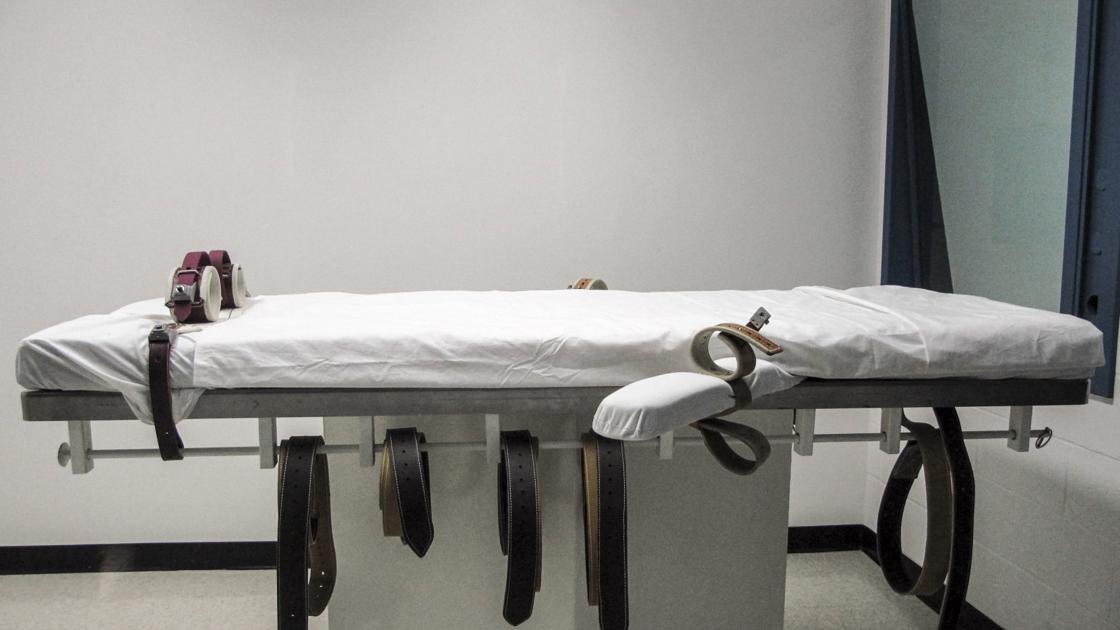
16 Mar Judge says Nebraska must provide information to attorneys for Arkansas death-row inmates | Regional Government
A federal judge has ruled that Nebraska must turn over documents about how it got the fentanyl it used to carry out an execution last summer.
But it doesn’t have to identify the pharmacy that supplied it.
Senior U.S. District Judge Laurie Smith Camp said that information isn’t relevant to the lawsuit by Arkansas death-row inmates because the company has “made a business decision to decline any future sales of chemicals to any state, including Nebraska.”
It is the second time a judge has directed the state to provide information about death penalty drugs that it seeks to keep private.
In the 12-page decision Friday, Camp gave the Nebraska Department of Correctional Services until April 12 to provide:
* Communications and documents exchanged between the prison and Pharmacy N, the pseudonym for the company that supplied the drugs, regarding the pharmacy’s decision to supply fentanyl to Nebraska for use in executions;
* Documents regarding how the prison was able to identify Pharmacy N and persuade the company to supply fentanyl to Nebraska for use in executions; and
* Communications between the prison and Pharmacy N regarding its decision to supply fentanyl to Nebraska for use in executions.
Last summer, attorneys for a group of five Arkansas death-row inmates asked a U.S. District judge to force Nebraska to provide them information about where it got the fentanyl it ultimately used in Carey Dean Moore’s execution in August.
They argued it was relevant to a pending lawsuit in federal court in Arkansas where they were challenging, among other things, the state’s use of midazolam in executions, which they called inhumane.
Little Rock attorney John Williams contended a protocol that uses diazepam and fentanyl would “significantly reduce the substantial risk of pain and suffering inherent in the midazolam protocol,” and pointed to Nevada and Nebraska, which both obtained the drugs for executions.
In a brief, he argued information Nebraska has about its source was necessary to determine whether the drug could be made available to Arkansas for use in executions, a required element of the inmates’ claim.
At stake, attorneys say, is the right of at least 17 men to not be subjected to cruel and unusual punishment during their executions.
When the prison and the Nebraska Attorney General’s office refused to provide it, they sought an order compelling them to comply under a subpoena issued in the Eastern District of Arkansas.
Friday, Camp said the 8th Circuit Court of Appeals, to which Nebraska and Arkansas both are a part, has held that the name of a supplier of execution drugs no longer remains relevant once it “indisputably refuses to make (the drugs) available to anyone.”
Pharmacy N’s president made a declaration that, since supplying lethal injection drugs to Nebraska, it has decided not to provide them again.
But, Camp said, because Nebraska ultimately was able to successfully obtain fentanyl, the information sought by the Arkansas inmates still “may be relevant to whether it is truly infeasible for Arkansas to use fentanyl for its executions.”
The AG’s office argued Nebraska should be immune from such subpoenas and that the action infringes on the state’s autonomy.
Camp said the Nebraska Department of Correctional Services asserted that, after “extraordinary difficulty” in finding a supplier, Pharmacy N agreed to provide the drugs “on the condition that its identity would remain secret.”
“Compliance with the subpoena would signal to possible future suppliers that Nebraska cannot legally keep their identities secret, thus jeopardizing NDCS’ ability to secure a stable supply of drugs to carry out future executions,” they argued.
But, Camp said, those concerns are moot, since the name of the pharmacy is being redacted.
The AG’s office also argued — as it did in a state public-records lawsuit — that the subpoena forces disclosure of “material reasonably calculated to lead to the identity of execution team members,” despite a state statute that makes that a secret.
But Camp said the state hadn’t shown the information was protected under the discovery exemption of the law, which allows for disclosure after a showing of “extraordinary good cause” as long as a protective order is issued to limit dissemination of the information.
The state can appeal to the 8th Circuit.
In the separate state case, a Lancaster County judge in June ordered the state to release records of communications with its lethal injection drug supplier, as well as several other documents related to Nebraska’s efforts to carry out the death penalty.
The state appealed to the Nebraska Supreme Court, which hasn’t yet held oral arguments in the case.
[ad_2]
Source link



No Comments